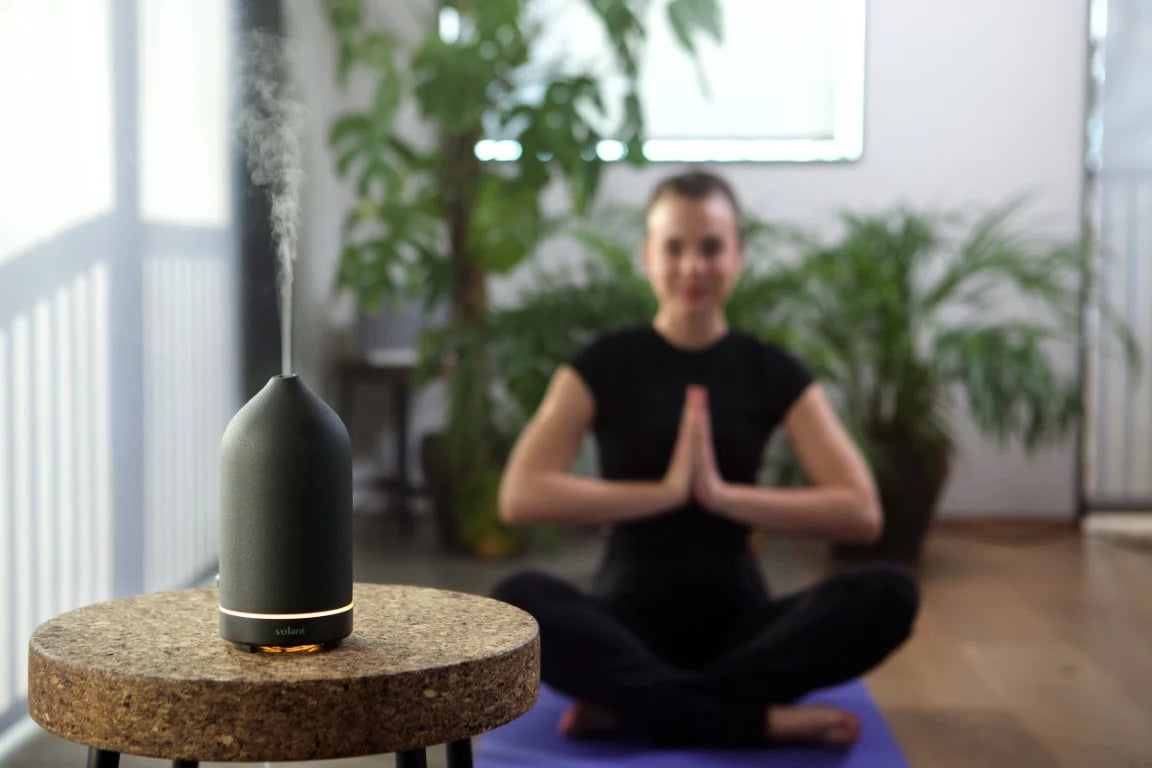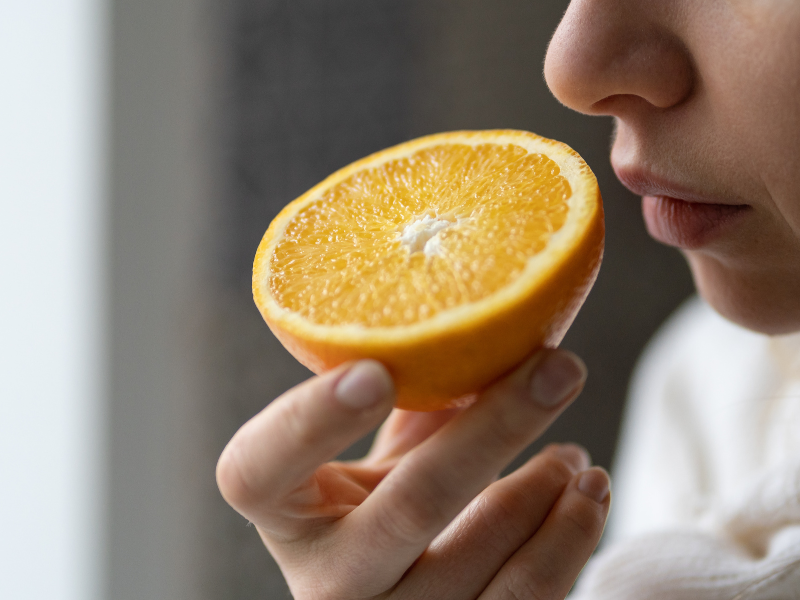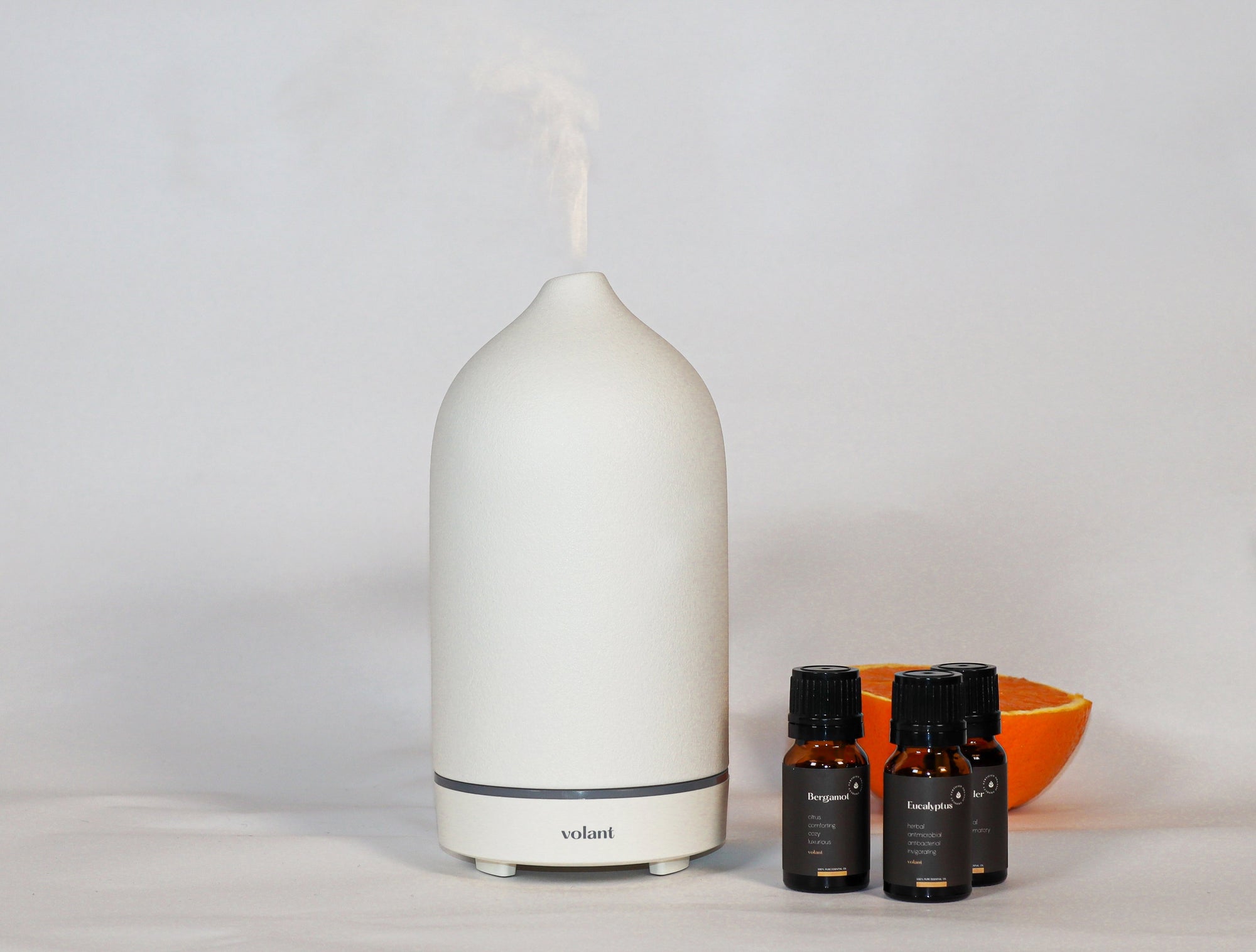If you’ve been wondering, what is aromatherapy anyway? And want to know more, this guide is for you. All your questions about aromatherapy and how it can benefit you are answered here.
Aromatherapy explained

Aromatherapy is a type of holistic healing treatment that promotes health and well-being by using the natural extracts of plants. Sometimes referred to as essential oil therapy, aromatherapy relies on these oils to boost our health on a physical, emotional and mental level.
In ancient times, essential oils were used in both religious and medical settings, and modern research is confirming the many benefits they can provide. This means that they're becoming more widely used these days and thus, more accessible too.
When inhaled, the scent molecules in essential oils travel from your olfactory nerves to your brain. They impact the amygdala, which is the emotional center of our brains where our feelings are processed. Emotions are closely tied to memories, so scents often trigger emotions linked to certain memories, in turn releasing certain neurotransmitters or hormones that affect how we feel - like how a certain perfume reminds you of your first kiss and makes you feel romantic, or how the ocean breeze helps you feel fresh, free and relaxed. This is why these oils have such a remarkable effect on us emotionally and allow us to heal on more than one level at a time.
When absorbed by the skin in the case of topical use or aromatherapy massage, not only are we inhaling the scent, but the phytochemicals in the oils are absorbed directly through our skin into the bloodstream where they can have direct effects on the body and mind, such as soothing pain and inflammation, killing germs, making you feel energized and happy or helping you sleep.
A short history of aromatherapy

The distillation of essential oils from certain plants is officially attributed to 10th century Persia, but it’s likely that the practice is much older.
Fast forward to the 1500s and there is published information about essential oil distillation emerging. After that, we see French doctors in the 19th century recognizing the healing potential of essential oils.
Chemically-based treatments enjoyed much popularity around the world in the later parts of the 19th century. But the French and Germans still relied on plant-based treatments to a large degree.
René-Maurice Gattefossé, a French chemist and perfumer, coined the term “aromatherapy” and used it as the title for a book he published in 1937. He did so in recognition of his successful treatment of serious burns using lavender.
His book explores the healing power of essential oils and their efficacy in treating certain medical conditions. It’s an extremely valuable resource because it gives us a description of what aromatherapy is from a licensed physician.
How are essential oils made?

Essential oils are compounds that are extracted from certain plants, capturing a plant’s scent, flavor and essence. These unique aromatic compounds are what give each essential oil its own characteristic make-up. They're most commonly extracted using steam and/or water distillation or by a mechanical method called cold pressing.
What is aromatherapy? In a nutshell, it’s the use of these products to effect change in our bodies, be it by adjusting your mood, easing certain kinds of physical discomfort, warding off illness or affecting your cognitive function.
The benefits of aromatherapy

When you can answer the question of what is aromatherapy, you’ll know that its benefits include:
- Pain management
- Enhancing your energy or sleep
- Reducing agitation, stress and anxiety
- Providing a safe alternative and/or complementary support for a range of health concerns
- Providing a safe alternative and/or complementary support for a range of health concerns
- Boosting your immune system and fighting off infection
The list of conditions that aromatherapy can help includes, but is not limited to:
- Acne
- Aging skin
- Alopecia
- Anxiety
- Arthritis
- Asthma
- Cancer
- Depression
- Fatigue
- Infections
- Insomnia
- Menstrual issues
- Pain
- Respiratory issues
The benefits you’ll receive from aromatherapy vary from essential oil to oil. Do some homework before you purchase your oils so that you know which ones will meet your needs.
What essential oils should I use for aromatherapy?
There are over 100 different kinds of essential oils. Some have similar effects while others are very unique. Some are more irritating or toxic at low doses while others have a broad safety profile. It’s important to research essential oils before using them so you know how to use them safely and which ones will benefit you most.
Below are some of the most popular essential oils you can find.
Lavender

Derived from the sweet-smelling plant of the same name, lavender essential oil promotes relaxation and a good sleep while soothing anxiety, depression and insomnia. It’s also excellent for allergies, fungal infections, eczema, menstrual cramps and nausea. Lavender is the most heavily researched essential oil.





